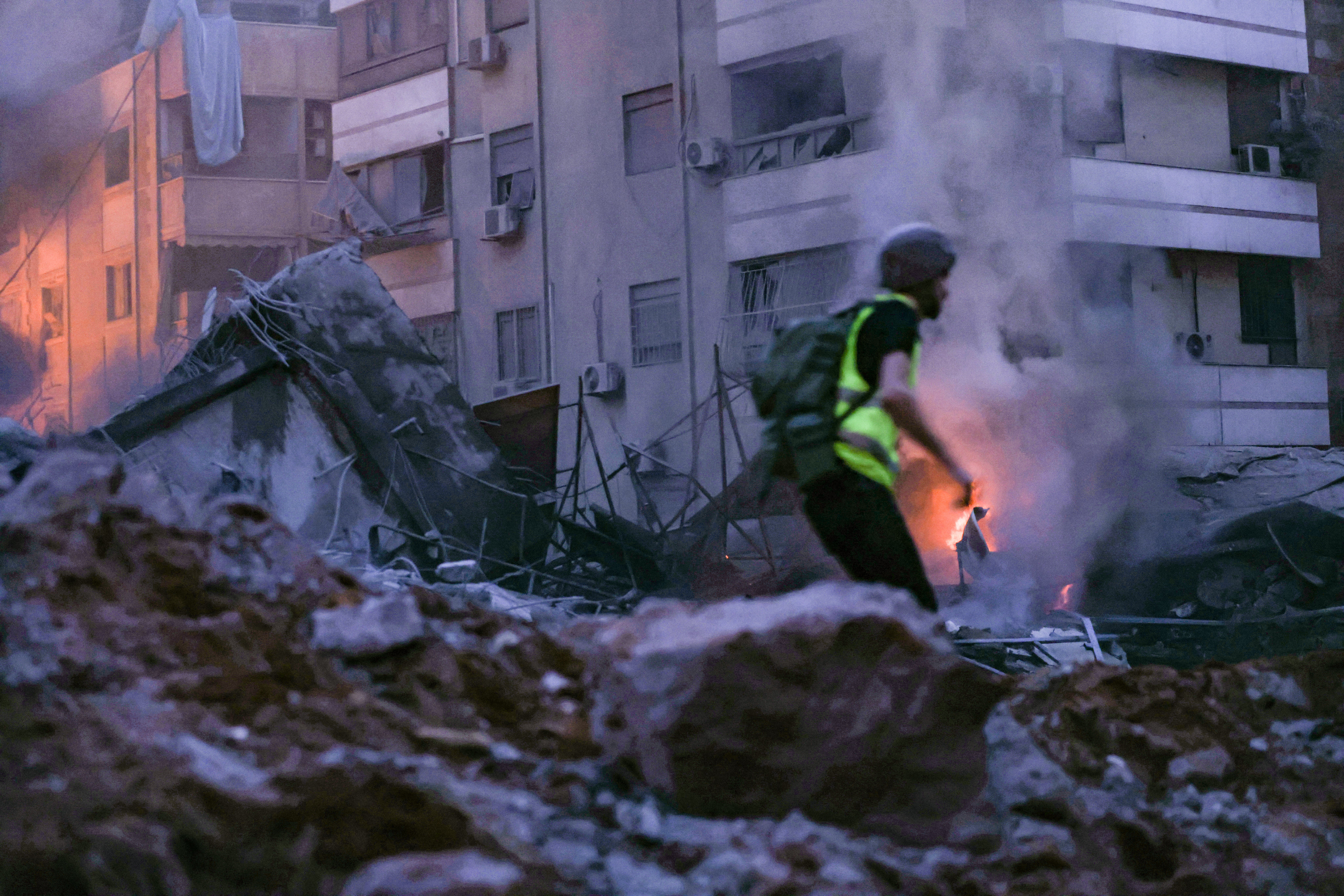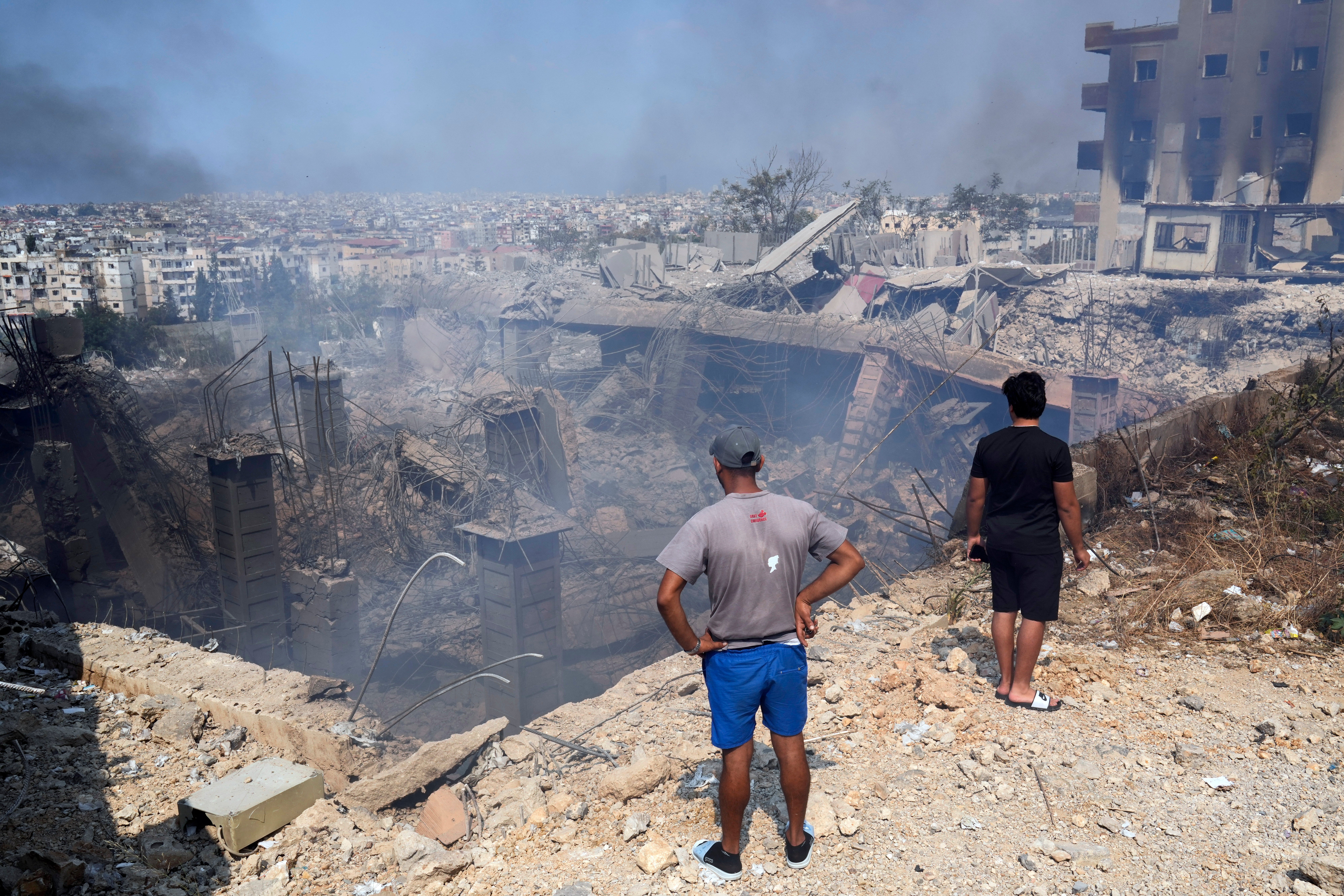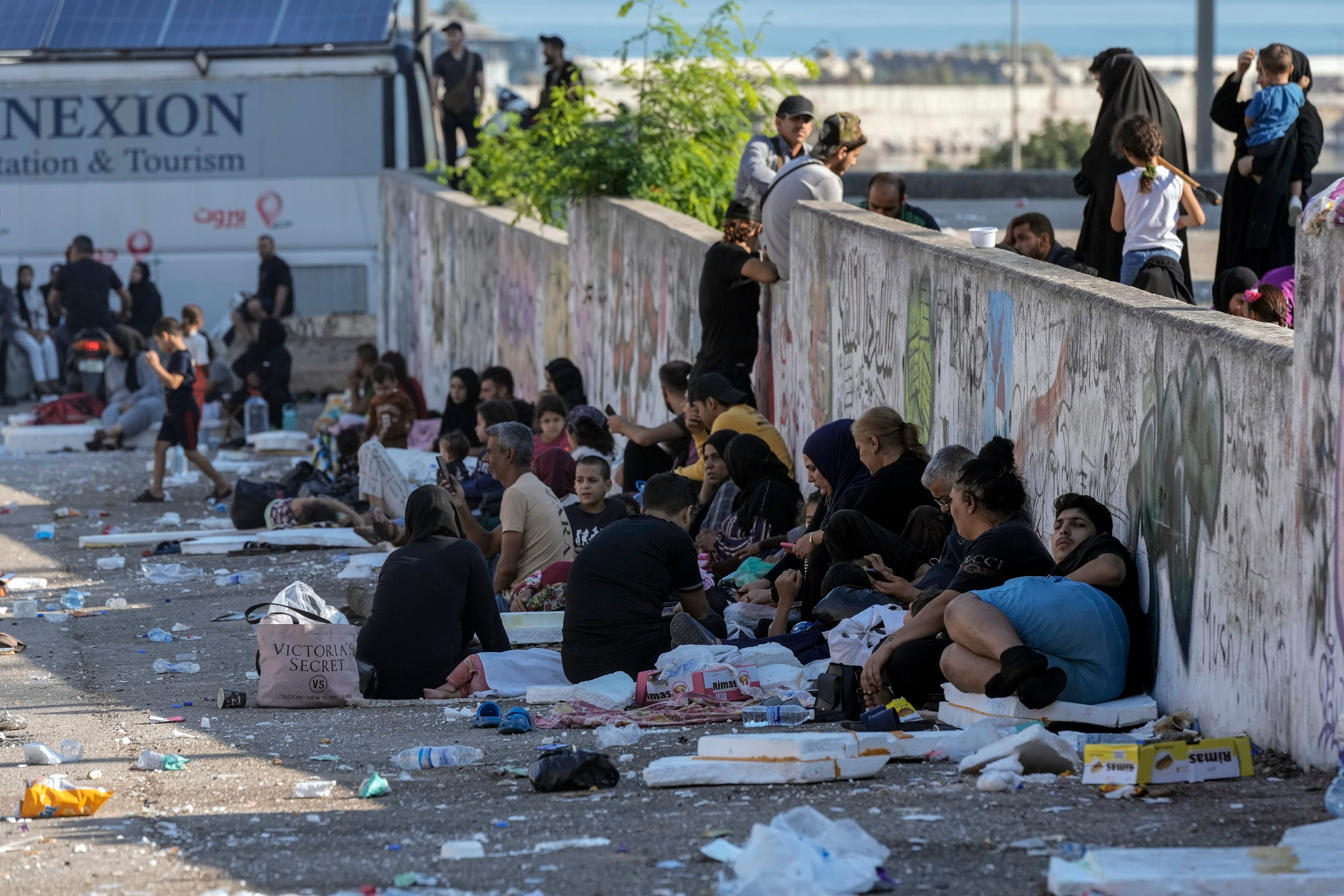This website uses cookies so that we can provide you with the best user experience possible. Cookie information is stored in your browser and performs functions such as recognising you when you return to our website and helping our team to understand which sections of the website you find most interesting and useful.
Your support helps us to tell the story
Our mission is to deliver unbiased, fact-based reporting that holds power to account and exposes the truth.
Whether $5 or $50, every contribution counts.
Support us to deliver journalism without an agenda.

Louise Thomas
Editor
Hezbollah’s leader of 32 years, Hassan Nasrallah, has been killed in an Israeli strike marking a significant escalation in the two foes’ conflict and amplifying fears of a wider war.
The Israeli military said it was on high alert as the Lebanese militant group confirmed Nasrallah’s death in a strike that levelled six Beirut apartment blocks, killing at least 11 people and wounding over 100 more, health officials said.
Ali Karki, the commander of Hezbollah’s southern front, was among several senior figures also killed in the attack, the Israeli military claimed, along with Abbas Nilforushan, a prominent general in Iran’s paramilitary guard, according to Iranian state media reports.

The strikes ramp up pressure on Iran to retaliate as Nasrallah’s death leaves Tehran’s most powerful proxy without the man who has led the group since 1992.
Iran’s supreme leader Ayatollah Ali Khamenei called on people to stand by Hezbollah “with whatever means they have” and assist them in confronting Israel, warning that “the fate of this region will be determined by the forces of resistance, with Hezbollah at the forefront”.
The killing drew condemnation from regional leaders, with Iraq’s premier Mohammed Shia al-Sudani accusing Israel of having crossed “all red lines”. Turkey’s president Recep Tayyip Erdogan warned that Israel “must be stopped” and condemned its “inhumane” attacks against Lebanon.
But US President Joe Biden said the killing of Nasrallah was ‘measure of justice’ for his victims.
British officials repeated foreign secretary David Lammy’s pleas to the UN this week for a ceasefire and a political solution to avoid “a full-blown war” as the conflict between Israel and Hezbollah – simmering since Hamas’s 7 October attack on Israel – rapidly boils over.
The Foreign Office urged the 5,000 or so British citizens in Lebanon to leave immediately, and is thought to be ready to facilitate evacuations by sea or air if the security environment deteriorates further.
Following Friday’s major escalation of strikes, Israeli military spokesperson Daniel Hagari said it expects “challenging days ahead” with Israel limiting the size of gatherings to 1,000 people as it braces for a retaliation.
But he insisted that Nasrallah – whom he said was “among the biggest-ever enemies of Israel” – had “posed a threat to Israeli citizens for decades, and his elimination makes the world a safer place”.
Echoing this, Israel’s defence minister Yoav Gallant said Friday’s strike in southern Beirut – among the heaviest since the 2006 war, and supposedly using 80 bombs over the space of several minutes – was one of “the most important targeted strikes since the founding of the state of Israel”.
Under Nasrallah, a Shia cleric, fiery orator and shrewd strategist, Hezbollah spearheaded the war of attrition that led to the end of Israel’s 18-year occupation of south Lebanon in 2000, and further fought Israel to a stalemate in 2006, before fighting in Syria in support of president Bashar Assad.
Despite the power he wielded, and with his group’s attacks on northern Israel over the past year having displaced some 60,000 people, Nasrallah had lived largely in hiding for fear of an Israeli assassination.
While Israel and Hezbollah have been exchanging frequent fire since the deadly incursion by Palestinian militants Hamas sparked Israel’s war in Gaza, Mr Gallant declared last week that Israel was entering a “new phase in the war” and “the centre of gravity is shifting” towards the country’s northern border.

Amid outcry over the destruction wrought by the strikes in the southern suburbs of Beirut, Mr Hagari insisted the Hezbollah headquarters it had targeted had been a legitimate military target under international law.
Israel continued its airstrikes on Saturday, and said it was mobilising additional reserve soldiers, activating three more battalions. Earlier this week, it sent two brigades to northern Israel to train for a possible ground invasion of southern Lebanon.
Lebanon’s health ministry said on Saturday that 11 people had died so far as a result of the attack on Friday, with 108 others injured – taking the total killed since Israel’s shock attack remotely detonating pagers and walkie-talkies used by Hezbollah last week to more than 1,040 people.
That death toll includes 56 women and 87 children, while more than 6,350 people have been injured, the ministry said.
Israel carried out more than 140 airstrikes in southern Beirut and eastern Lebanon’s Bekaa Valley on Saturday, while Hezbollah launched dozens of projectiles across northern and central Israel, as well as deep into the occupied West Bank, damaging some buildings in the northern town of Safed.

In Beirut’s southern suburbs, smoke rose and the streets were empty, with shelters set up in the city centre for displaced people overflowing. Many families slept in public squares and beaches or in their cars. Hundreds could be seen making an exodus by foot on the roads leading to the mountains above the capital.
Conversely, the centre of Beirut was chaotic, with people searching for food, water and shelter. With hotels and apartments fully booked, most of those searching on Saturday morning were already too late.
People could be seen hoping for shade under trees, in small parks of children’s playgrounds, while Israeli surveillance drones swarmed loudly above the city. Many cried and looked desperate.
“We went from one hell to another”, a woman sitting on the stairs of the Mohammad al Amin Mosque at Martyr’s Square in the capital told The Independent. She arrived here with her family hours after they left their house in Beirut’s south at 4am amid Israeli shelling.
“We don’t know where to go and what will happen”, said her brother Yahya al Shaer. “We have cousins in Baalbek, but there the situation is the same or even worse.”

Hazem Ismael Slim said hs family had travelled from the southern border town of Houla to seek refuge. “Our mother was with us too, but she died this week because she was ill and we could not find the right care for her in Beirut,” he said. His sister Iman cried and showed a picture of their deceased mother.
The siblings are left with their father, but have no money for shelter, food or water. “Even some schools ask for a fee to take shelter”, said Mr Slim.
With the UN reporting that 118,000 Lebanese people have been displaced in recent days, Unicef’s deputy chief in Lebanon, Ettie Higgins, warned that hospitals in Beirut were “overwhelmed” and that “even the most basic essential services of healthcare and water are now being rapidly, rapidly depleted”.
“There was already a humanitarian crisis in Lebanon given that it’s been hosting over one million refugees from Syria for over a decade, so it’s rapidly escalating into a catastrophe,” she told the BBC, expressing fears that the ongoing strikes will cause the current death toll of 50 children to rise further.
Additional reporting by agencies



 Africana55 Radio
Africana55 Radio 
